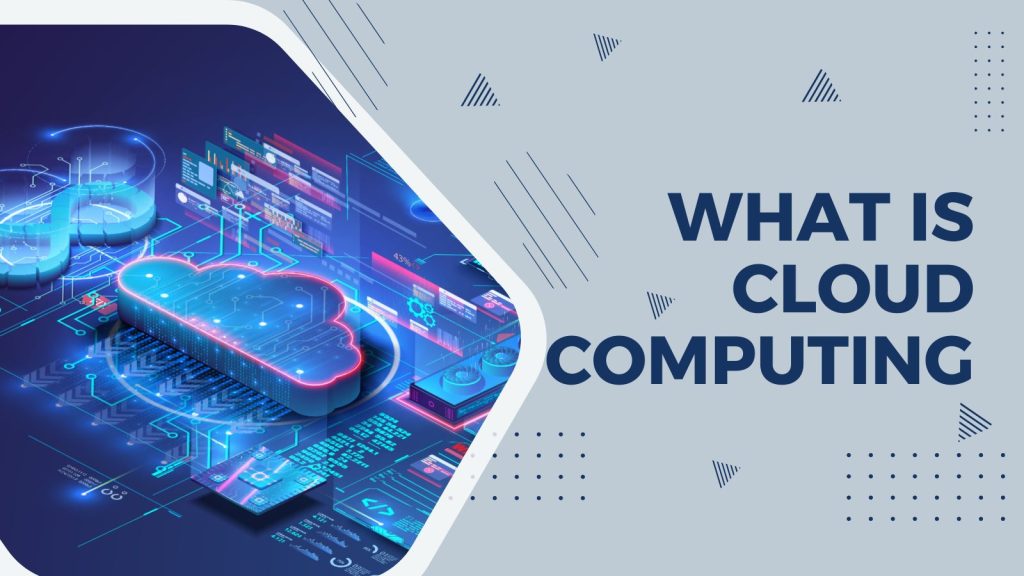Not long ago, I remember offices having really large machines that produced so much noise, had a lot of lights, and needed to always be cool or else they would collapse. I remember thinking to myself, “What on earth is this?” Why will top-notch companies have such.

I remember the director of the IT department of the office I worked at then explained that it is a “data center,” and any company, large or small, regardless of size, needs a data center as long as they have an online presence.
Now we don’t see these noise-making machines in the workplace anymore. What changed? Did we all just opt out and shut down our online presence? Or did they just go extinct?
Over the years, the tech industry has grown and developed so much, and this growth has greatly impacted our world. It affects how we live, communicate, and even conduct business. With all this development and change going on, the huge machinery that used to be situated in the IT office has been replaced with something called “Cloud computing. Cloud computing is now an essential part of how we live. As a matter of fact, it has become the “new normal” as far as online presence is concerned.
In this blog, we will dig deeper into what cloud computing is, its uses, and why it has gained popularity in recent times.
What is Cloud Computing?
Cloud Computing provides us a means by which we can access applications as utilities, over the internet (“cloud”). It allows us to create, configure, and customize business applications online.
In layman’s terms, cloud computing means storing and accessing data and programs over the internet rather than those huge machines.
This means that rather than businesses owning a data center, they can easily get access to services such as storage, computer servers, and databases from a cloud computing service provider by paying to rent this access.
These are some of the advantages of cloud computing, it can help businesses reduce operational costs, improve infrastructure efficiency, and expand their applications to meet business demands.
Who Can Use Cloud Computing, and what can it be used for?
Cloud Computing can be used by several businesses and individuals, including but not limited to;
- Individuals: individuals use cloud computing services for personal purposes, such as accessing software applications, collaborating with others on projects, and storing and backing up data.
- Small and Medium-Sized Businesses (SMBs): Cloud computing enables SMBs to store and manage data, host websites, and applications, and use software-as-a-service (SaaS) applications for their various business services.
- Large Enterprises: Cloud computing offers scalability and flexibility for large enterprises, allowing them to handle massive amounts of data, run complex applications, and scale their infrastructure according to demand. It also enables them to optimize costs and streamline operations by leveraging cloud-based services.
- Developers: Cloud platforms provide developers with the tools and resources needed to build, test, and deploy applications more efficiently. These platforms offer infrastructure services (IaaS), platform services (PaaS), and software services (SaaS) to support various development processes.
Types of Cloud Computing Services
There are three main types of cloud computing services:
- Infrastructure as a Service (IaaS): This is the most simple kind of cloud computing service. It delivers internet-based virtualized computer resources such as servers, storage, and networking. Users may use this feature to build and provide their own virtual computers and apps
- Platform as a Service (PaaS): This kind of cloud computing service gives developers a place to create, test, and deploy applications. It comprises application development tools and services such as programming languages, databases, and web servers.
- Software as a Service (SaaS): This is the most sophisticated cloud computing service. It offers entire applications like email, customer relationship management (CRM), and enterprise resource planning (ERP) software through the Internet.
Why Cloud Computing Matters
Cloud computing has several advantages over traditional computing:
- Scalability: Cloud computing services are scalable, allowing customers to pay only for the resources they utilize.
- Cost Savings: Expenses are reduced as customers do not need to purchase and maintain a data center.
- Accessibility: You can access cloud computing services remotely with an internet connection, which gives its users the ability to work from anywhere they choose.
- Security: Cloud computing companies often have better security resources and experience than individual users or enterprises.
Different Cloud Service Providers
- Amazon Web Services (AWS): AWS is the major cloud service provider. AWS offers a variety of cloud services, such as computing, storage, databases, analytics, and machine learning. AWS is known for scalability, dependability, and security. Although it can be difficult to operate and requires a high learning curve for novices.
- Microsoft Azure: Azure cloud services provide a wide range of services, which include computation, storage, databases, analytics, and machine learning. It is known for being compatible with Microsoft products and services, which makes it the first choice for businesses that use Microsoft services.
Azure is also known for its hybrid features, which allow businesses to operate apps on-site as well as in the cloud. It is, however, more expensive than other cloud providers.
- Google Cloud: Google Cloud platform provides computing, storage, databases, analytics, and machine learning services. It is known for its user-friendliness and strong support for open-source technology. Google Cloud is also well-known for its AI and machine learning capabilities. It may not, however, be as feature-rich as other cloud providers.
In conclusion, technology in general is changing our lives at a fast pace, and cloud computing is one of the mediums through which this fast-paced transformation is happening, hence why it is gathering so much clout. It has become almost as important “as the air we breathe”.
As technology continues to evolve our lives and as more and more businesses migrate to the cloud, it is critical to understand the many types of services available and the benefits they provide.
.

